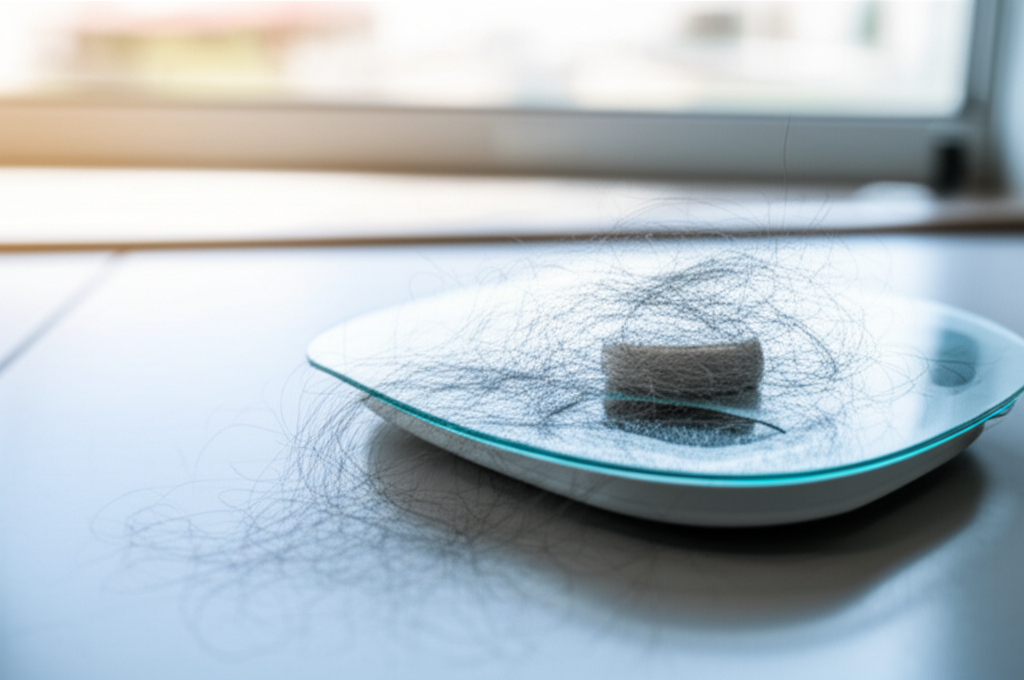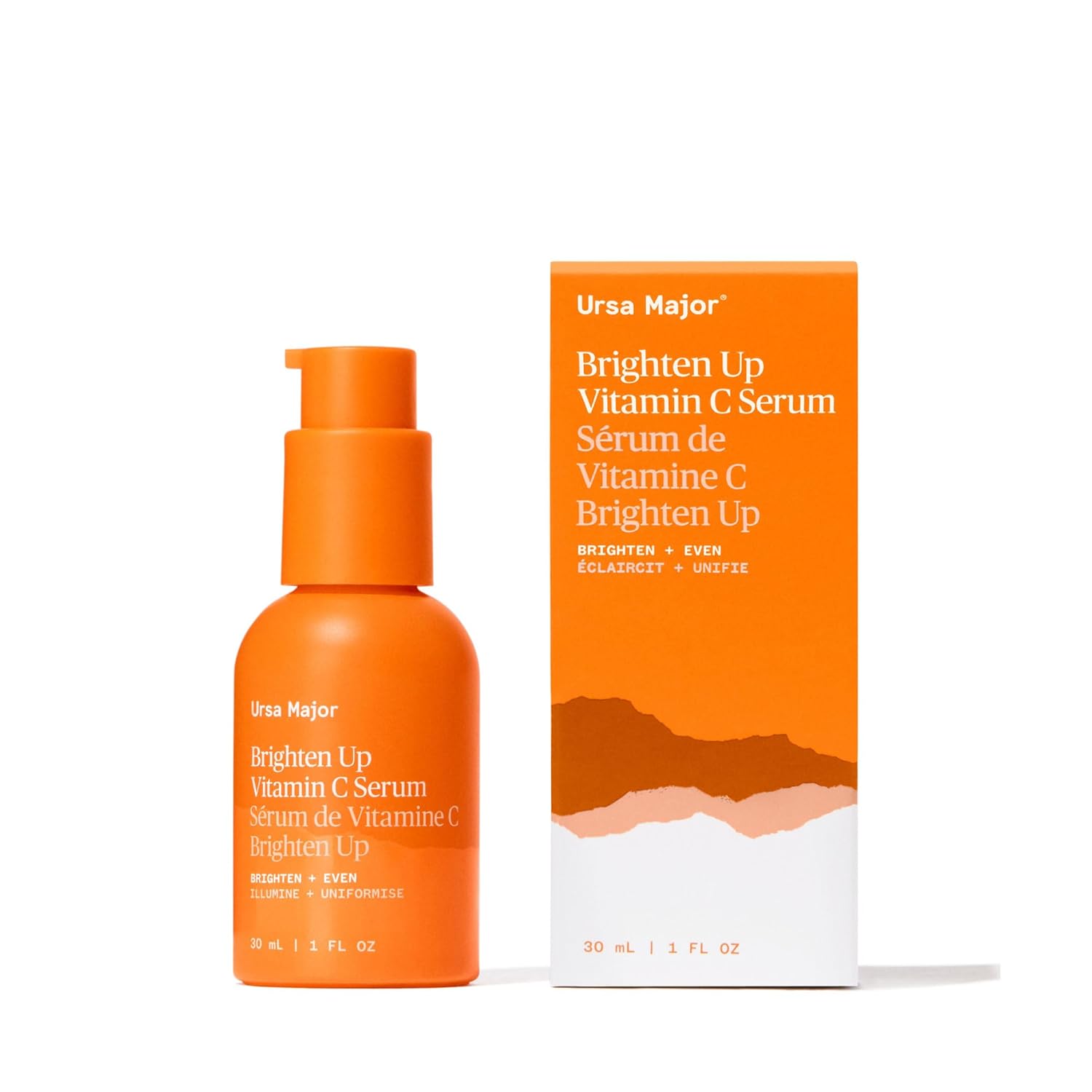Weight Loss and Hair Loss: Proven, Simple Tips

Weight loss and hair loss often go hand-in-hand, but with the right approach, you can achieve your goals without sacrificing your locks. Focus on gradual, nutrient-rich changes, and consult professionals for tailored advice.
Do you ever look in the mirror and wish the extra pounds would just vanish? You’ve tried dieting, working out, and skipping meals—but nothing seems to work? And then, you start noticing something else: more hair in your brush than usual. It can be incredibly disheartening. For so many of us, the journey to a healthier weight comes with an unexpected side effect: hair thinning or loss. This can lead to a whole new set of worries, making you question what’s happening to your body and if you’re doomed to lose both your ideal weight and your beautiful hair. But what if I told you that you don’t have to choose? What if you could achieve your weight loss goals while keeping your hair healthy and strong? Stay tuned, because we’re about to uncover the simple, proven strategies that bridge the gap, offering you a clear path towards feeling great inside and out.
Understanding the Connection: Why Weight Loss Can Lead to Hair Loss
It might seem counterintuitive. You’re trying to get healthier, so why is your body seemingly working against you by making your hair fall out? The truth is, rapid or extreme weight loss can put your body under significant stress, and your hair is often one of the first places this stress shows up. This phenomenon is commonly known as telogen effluvium, a temporary condition where significant physical or emotional stress causes hair follicles to enter a resting phase, leading to increased shedding a few months later.
One primary culprit is often nutrient deficiencies. When you drastically cut calories or eliminate entire food groups, you risk not getting enough essential vitamins and minerals that are crucial for hair growth. Iron, protein, zinc, and certain B vitamins are vital for maintaining healthy hair. Without them, your body prioritizes essential functions over hair production, leading to thinning.
Another factor is the hormonal shifts that can occur, especially with rapid weight loss. Your body sees a significant calorie deficit as a form of starvation, and it can trigger changes in hormones like cortisol (the stress hormone) and thyroid hormones. These imbalances can disrupt the hair growth cycle.
Think of your body like a well-managed household. If the budget is suddenly cut drastically, the first things to go are often the “non-essentials” to ensure the core needs are met. For your body, keeping your hair growing might be considered a non-essential when it’s under severe caloric restriction or stress. It’s redirecting its resources to more critical bodily functions.
It’s important to remember that this is usually a temporary situation. By understanding the underlying causes and implementing the right strategies, you can reverse this effect and support both your weight loss journey and your hair health.
Essential Tips for Weight Loss Without Sacrificing Your Hair
The key to successful weight loss that supports hair health lies in adopting a sustainable, balanced approach. It’s not about deprivation; it’s about making smart, informed choices that nourish your body from the inside out.
Tip 1: Embrace Gradual and Sustainable Weight Loss
Crash diets and extremely low-calorie intake are often the biggest enemies of both weight loss and hair health. Aim for a gradual loss of 1-2 pounds per week. This pace allows your body to adjust without subjecting it to extreme stress and nutrient deprivation.
Think of it like this: If you’re aiming to climb a mountain, you wouldn’t try to sprint to the summit from the base without stopping to rest and hydrate. Gradual weight loss ensures you’re building a stronger, healthier foundation, and your hair benefits from this steadier approach.
A slower rate of weight loss is also more sustainable long-term, meaning you’re less likely to regain the weight and less likely to experience significant hair shedding.
Tip 2: Prioritize Nutrient-Dense Foods
This is arguably the most critical tip for preventing hair loss during weight loss. Every meal should be an opportunity to fuel your body with essential nutrients vital for hair growth.
Key Nutrients for Hair Health:
- Protein: Hair is primarily made of protein (keratin). Low protein intake can lead to thinning hair. Include lean meats, fish, eggs, dairy, legumes, nuts, and seeds.
- Iron: Iron deficiency (anemia) is a common cause of hair loss, especially in women. Good sources include red meat, spinach, lentils, and fortified cereals.
- Zinc: This mineral is crucial for hair tissue growth and repair. Find it in oysters, beef, pumpkin seeds, and lentils.
- Vitamin D: While more research is needed, low vitamin D levels have been linked to hair loss. Get it from sunlight, fatty fish, and fortified foods.
- B Vitamins (especially Biotin): Biotin is well-known for its role in hair and nail health. Eggs, nuts, whole grains, and sweet potatoes are good sources.
- Omega-3 Fatty Acids: These can help reduce inflammation and promote hair growth. Found in fatty fish like salmon and mackerel, as well as flaxseeds and walnuts.
Sarah, a busy mom of two, realized her afternoon “pick-me-up” snacks were often processed and low in nutrients. She started incorporating a handful of almonds and a hard-boiled egg into her routine, and then ensured her main meals included a good source of protein and leafy greens. Within two months, she noticed less hair in her brush without feeling deprived.
Visual Suggestion: An infographic showcasing “Top Foods for Healthy Hair” with appealing images of salmon, spinach, eggs, and berries would fit well here.
Tip 3: Stay Adequately Hydrated
Water is essential for almost every bodily function, including nutrient transport to hair follicles and overall cell regeneration. Dehydration can impact your energy levels and make your body feel stressed, potentially exacerbating hair shedding.
Aim for at least 8 glasses (64 ounces) of water per day. More if you’re exercising or in a hot climate. Some prefer to start their day with a glass of warm water with lemon, which can be a gentle way to hydrate and kickstart your metabolism without adding calories.
If plain water is too boring, try infusing it with fruits like cucumber, berries, or mint. Herbal teas also count towards your daily fluid intake.
Tip 4: Combine Diet with Gentle Exercise
Regular physical activity is crucial for weight loss and overall health. It helps burn calories, improves metabolism, and reduces stress. However, the type and intensity of exercise matter when hair loss is a concern.
Focus on moderate-intensity exercises like brisk walking, cycling, swimming, or yoga. These activities promote calorie expenditure and improve circulation without putting undue physical stress on your body. High-intensity, prolonged exercise (like marathon training) can sometimes act as a stressor, potentially contributing to telogen effluvium in susceptible individuals.
Remember to listen to your body. If you’re new to exercise, start slowly and gradually increase the duration and intensity. Consistency is more important than going all-out every single time.
Visual Suggestion: A simple table outlining a weekly moderate-exercise schedule could be very helpful for beginners.
Here’s a sample weekly exercise plan:
| Day | Activity | Duration | Intensity (Perceived Effort) |
|---|---|---|---|
| Monday | Brisk Walking | 30 minutes | Moderate |
| Tuesday | Yoga/Stretching | 45 minutes | Light to Moderate |
| Wednesday | Cycling (stationary or outdoor) | 30 minutes | Moderate |
| Thursday | Rest or light walk | 20 minutes | Light |
| Friday | Swimming | 30 minutes | Moderate |
| Saturday | Hiking or longer walk | 60 minutes | Moderate |
| Sunday | Rest | – | – |
Tip 5: Manage Stress Levels
As we’ve mentioned, stress is a significant trigger for hair loss. Weight loss, by its very nature, can be a stressful process. Finding healthy ways to manage stress is paramount.
Incorporate stress-reducing activities into your daily routine: deep breathing exercises, meditation, spending time in nature, hobbies you enjoy, or listening to calming music. Even just 10-15 minutes a day can make a difference.
If you find yourself overwhelmed, don’t hesitate to talk to a friend, family member, or consider seeking professional help. Your mental well-being is just as crucial as your physical health.
Tip 6: Consider Supplements (With Caution and Professional Advice)
While a balanced diet should be your first line of defense, sometimes supplements can help fill nutritional gaps, particularly if you’re struggling to get enough from food alone. However, it’s crucial to approach supplements with caution and always consult with a doctor or a registered dietitian first.
Supplements commonly recommended for hair health include:
- Biotin: Often marketed for hair growth.
- Iron: If a blood test reveals iron deficiency.
- Zinc: For those with low zinc levels.
- Vitamin D: If you have a deficiency.
- Multivitamin: A good quality multivitamin can help cover general nutrient bases.
Important Note: Taking excessive amounts of certain vitamins and minerals can actually be harmful and may even contribute to hair loss. For example, too much Vitamin A can cause hair loss. Always follow recommended dosages and discuss with your healthcare provider.
A study published in the National Library of Medicine highlights the importance of micronutrients for hair health and discusses how deficiencies can impact hair. It further emphasizes the need for a holistic approach, encompassing diet and potentially targeted supplementation under guidance.
Tip 7: Be Patient and Consistent
Anyone telling you they lost a significant amount of weight and grew lustrous hair overnight is likely not telling the whole story. Both healthy weight loss and hair regrowth take time and consistency.
Your hair growth cycle has several phases, and it might take 3-6 months after addressing dietary changes or stress to notice a significant difference in hair thickness. Similarly, sustainable weight loss is a marathon, not a sprint.
Celebrate small victories along the way, both in terms of weight lost and a reduction in shedding. Consistency in your healthy eating habits and self-care routines is what ultimately leads to lasting results.
Real-Life Success Story: Maria’s Journey
Maria, a 35-year-old graphic designer, started a high-intensity diet plan to lose weight for an upcoming vacation. Within weeks, she shed a few pounds, but she also noticed her hair becoming increasingly brittle and shedding more profusely. Frightened, she stopped the restrictive diet and consulted a nutritionist.
Her nutritionist recommended a balanced diet focusing on lean protein, healthy fats, and plenty of fruits and vegetables, along with gentle exercises like daily walks and yoga. They also identified a slight iron deficiency through blood tests and recommended an iron supplement. Maria followed this plan diligently for six months.
Not only did she achieve her target weight loss of 20 pounds in a healthy, sustainable way, but her hair also gradually returned to its former thickness and shine. “I learned that health isn’t just about the number on the scale,” Maria shared. “It’s about nourishing my body, managing stress, and being patient. My hair health is so much better now, and I feel more confident than ever.”
When to Seek Professional Help
While many cases of hair loss related to weight loss are temporary and can be managed with lifestyle changes, there are times when seeking professional advice is essential.
Consult your doctor if:
- Your hair loss is sudden and severe.
- You experience bald patches.
- Your scalp is itchy, red, or painful.
- You have concerns about nutritional deficiencies.
- Your weight loss has been very rapid or extreme.
A doctor can rule out underlying medical conditions like thyroid issues or autoimmune diseases that might be causing hair loss independently. They can also perform blood tests to check for nutritional deficiencies and recommend appropriate treatments.
A registered dietitian or nutritionist can help you create a personalized meal plan that supports healthy weight loss while ensuring you get all the essential nutrients for strong hair. They can also help identify any unhealthy eating patterns contributing to your struggles.
Frequently Asked Questions (FAQs)
Why is my hair falling out after losing weight?
Rapid or significant weight loss puts your body under stress, which can trigger a temporary condition called telogen effluvium, causing increased hair shedding. Nutritional deficiencies from restrictive diets can also be a cause.
Can I lose weight without my hair falling out?
Yes! The key is to focus on gradual weight loss (1-2 pounds per week) and ensure your diet is rich in protein, iron, zinc, and vitamins. Avoid crash diets and extreme calorie restriction.
What are the best foods to eat for hair growth while losing weight?
Prioritize lean proteins (chicken, fish, eggs, beans), iron-rich foods (spinach, lentils, lean red meat), zinc sources (nuts, seeds, pumpkin seeds), and healthy fats (avocado, olive oil, fatty fish).
How much weight loss is too much for my hair?
While there’s no exact number, losing more than 1-2 pounds per week or undergoing extreme calorie restriction can stress your body and lead to hair loss. Gradual loss is best.
Should I take hair growth supplements when losing weight?
You can consider them if you have a confirmed deficiency, but it’s best to get nutrients from food. Always consult a doctor or dietitian before starting any supplements, as some can be harmful in excess.
How long does it take for hair to stop falling out after weight loss?
If the loss is due to telogen effluvium from stress or diet, it often resolves within 3-6 months after the stressor is removed and your nutrition is balanced. Consistency with a healthy lifestyle is key.
Conclusion: Nourish Your Way to Confidence
Embarking on a weight loss journey is a brave step towards a healthier, more confident you. It’s completely understandable to feel worried when you see extra hair in your brush, but remember that this is often a manageable side effect, not an unavoidable consequence.
By focusing on gradual, nutrient-dense eating, staying hydrated, managing stress, and incorporating gentle exercise, you can support your body’s transformation from the inside out. You don’t have to sacrifice your hair to achieve your weight goals. Think of this as a holistic journey – honoring your body’s needs will lead to the most sustainable and beautiful results.
Your weight loss journey doesn’t have to be complicated. Start small, stay consistent, and remember—even the smallest steps lead to big results. You’ve got this!



